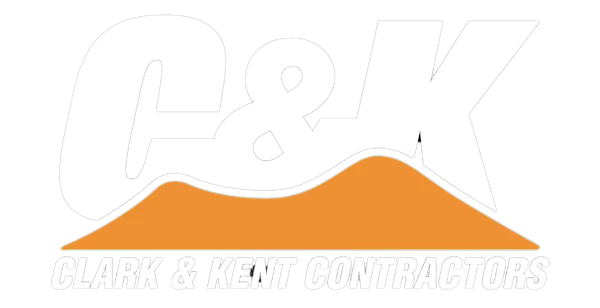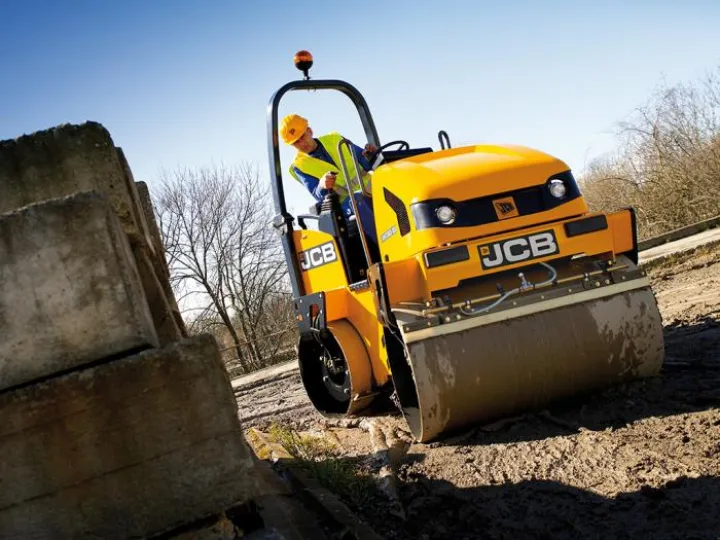Road roller hire
Advice on hiring a road roller
Road rollers are usually hired for the construction or repair of pathways, tracks and roads although they can be used to compact large surfaces such as car parks, sports pitches and similar areas.
Road roller compactors are designed to smooth uneven soil or to compress material used for sub-base layers ready for some form of construction.
Rollers use the weight of a large drum to compact the surface being rolled, and some add extra vibration to speed things up and improve compaction, although different types of ground may need different methods.
Advantages of road roller hire
Large and heavy ride-on rollers are often used on construction sites while smaller handheld ones can be used to help level such things as sports fields or even garden lawns.
With proper safety provision, a road roller is a simple and efficient way to prepare the ground before construction work begins.
The larger road rollers are relatively expensive machines and too costly to buy for a single job, so road roller hire is usually the best bet.
Hiring a road roller means you don't have to pay for maintenance, the machine can be returned to the hirer between jobs, and there is no cost for storing and transporting the road rolling device between sites.
The costs of buying and operating your own road roller can quickly add up and for many construction firms, it represents a poor investment in capital, especially when road roller rental is relatively cheap.
Types of drum road roller
There are two basic types of cylinder road roller, the single drum roller and the double drum roller. The difference between the two is evident just by looking at the name.
A single drum roller has one large drum while the double drum roller has two, usually with the driver sat between them. Although it may appear obvious which is more effective at rolling, the choice of road roller will often depend on the job at hand.
As it is smaller in size, the single drum roller can squeeze into much tighter places and is an excellent choice for preparatory work on a construction project like building paths and foundation work for new buildings.
Single drum rollers are also much more manoeuvrable as the rear wheels are small and light, making the unit much more manageable to steer.
The benefits of the double drum are its power and efficiency. A double drum unit will crush objects in front of and behind the driver at the same time.
The power of the double drum roller comes from a pair of steel drums fixed in tandem and units weighing at least one tonne can be driven over most surfaces.
But double rum roller won't have the traction or manoeuvrability of a single drum unit. For these reasons, they work best on large areas such as fields and main roads.
Pick the right roller for the job
Drum rollers of both types are great for preparing surfaces, but you need to pick the right one for the job.
The double drum roller is best for heavy-duty applications, such as when laying large areas of asphalt while the single drum roller is better for most small jobs.
Road rollers are heavyweight machines and should be used by a trained operator. Problems that can affect rolling operations can include poor weather, difficult aggregates and intricate layouts.
Most rollers are used for preparation ahead of paving and highway projects. A well-rolled surface will look flat and compact without any gaps between the aggregates used for the surface.
When to use a vibratory roller
A good operator will also know when best to use the roller vibratory mechanism. Vibration is generally achieved by eccentric weights attached to the shaft inside the roller drum.
Vibratory road rollers create shock waves that compact the base layer from lower to higher levels while static rollers work oppositely with more compaction at higher levels and less low down. Many road rolling projects will require a combination of both for best results.
As compaction can be increased with vibrating roller drums, smaller machines can sometimes achieve the same levels of compaction as a larger roller.
Like single and double drum rollers the choice very much depends on the particular job and the conditions.
Using a roller on asphalt
Poor operation of a road roller can result in corrugated surfaces with dips and indentations that will affect the standard of the final finish. This is never truer than when rolling hot asphalt surfaces to create such things as highways, car parks and similar large areas.
It is vital when rolling asphalt to maintain proper speeds. Rolling too slow can over-compact the surface while driving too fast can leave gaps and sudden turns or speed changes when rolling can tear at the surface. Rolling at the right temperature is also vital to achieving a well-rolled surface. As asphalt cools, it becomes more difficult to compact.
Driver training for road rollers
While the basics of rolling have not changed for decades, the machines have, especially with the recent growth in technology. It is for this reason that many construction firms choose to hire an experienced driver as well as the road rolling machines itself.
Operators who understand the limits and scope of their machines will always get the best results in the quickest time. As with any large machine work, it is essential that operators are given sufficient training and information to operate and maintain the safe and efficient operation of the machine.
Companies that hire or use contractor plant must ensure that all users receive adequate
basic training and ideally get specific job training under expert supervision. The driver also needs job familiarisation training until the company is satisfied that a proper operator standard has been reached before authorisation to drive is given.
Job specific training should also cover such things as using hitches, attachments and any other specialised equipment that is required to be used. Potential operators will require different periods and stages of training depending on experience and machine knowledge.
Clark & Kent Contractors has a wide range of road rollers for hire. Contact us now on 01630 672329.
Clark&Kent Services Hire
Providing quality specialist plant hire equipment for construction services


